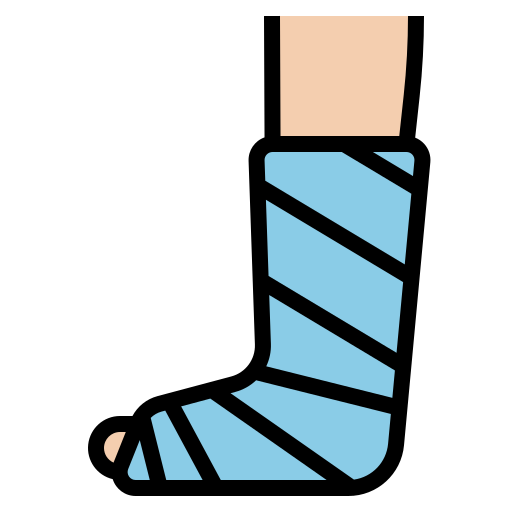Definition of Orthopedics & Traumatology

Orthopedics & Traumatology is a medical specialty that deals with the diagnosis, treatment, and prevention of injuries, diseases, and disorders of the musculoskeletal system, which includes bones, joints, ligaments, tendons, muscles, and nerves. This includes conditions such as: - Arthritis: a condition characterized by inflammation of the joints, leading to pain, stiffness, and limited range of motion. There are many types of arthritis, including osteoarthritis, rheumatoid arthritis, and gout.
- Fractures: a broken bone, which can occur due to injury, osteoporosis, or other bone diseases.
- Dislocations: a condition in which a bone is displaced from its normal position within a joint.
- Sprains and strains: injuries to the ligaments and muscles, respectively, which can occur due to overuse, trauma, or improper use.
- Back pain: a common condition that can be caused by a variety of factors, such as injury, poor posture, and certain medical conditions.
Orthopedic surgeons use both surgical and non-surgical methods to treat these conditions. Surgical options include joint replacement, arthroscopy, and spinal surgery. Non-surgical options include physical therapy, medications, and bracing. Traumatology is a subspecialty of orthopedics that focuses on the management of acute injuries, such as those caused by sports, accidents, and falls. Traumatologists are typically responsible for initial stabilization and management of patients with musculoskeletal injuries, including fractures, dislocations, soft tissue injuries and open wounds. They also take care of patients with complex injuries that require multiple surgical procedures and/or rehabilitation.
It's important to note that orthopedics is a broad field that encompasses many different subspecialties, including sports medicine, pediatrics, and oncology, each of which deals with specific aspects of musculoskeletal care.

Musculoskeletal physiopathology V - Trauma
1
soon
1.
Heterotopic Ossification
 Add a new chapter
Add a new chapter
successOrthopedics & Traumatology is a medical specialty that deals with the diagnosis, treatment, and prevention of injuries, diseases, and disorders of the musculoskeletal system, which includes bones, joints, ligaments, tendons, muscles, and nerves. This includes conditions such as: - Arthritis: a condition characterized by inflammation of the joints, leading to pain, stiffness, and limited range of motion. There are many types of arthritis, including osteoarthritis, rheumatoid arthritis, and gout.
- Fractures: a broken bone, which can occur due to injury, osteoporosis, or other bone diseases.
- Dislocations: a condition in which a bone is displaced from its normal position within a joint.
- Sprains and strains: injuries to the ligaments and muscles, respectively, which can occur due to overuse, trauma, or improper use.
- Back pain: a common condition that can be caused by a variety of factors, such as injury, poor posture, and certain medical conditions.
Orthopedic surgeons use both surgical and non-surgical methods to treat these conditions. Surgical options include joint replacement, arthroscopy, and spinal surgery. Non-surgical options include physical therapy, medications, and bracing. Traumatology is a subspecialty of orthopedics that focuses on the management of acute injuries, such as those caused by sports, accidents, and falls. Traumatologists are typically responsible for initial stabilization and management of patients with musculoskeletal injuries, including fractures, dislocations, soft tissue injuries and open wounds. They also take care of patients with complex injuries that require multiple surgical procedures and/or rehabilitation.
It's important to note that orthopedics is a broad field that encompasses many different subspecialties, including sports medicine, pediatrics, and oncology, each of which deals with specific aspects of musculoskeletal care.
Orthopedics & Traumatology - MedkronosOrthopedics & Traumatology